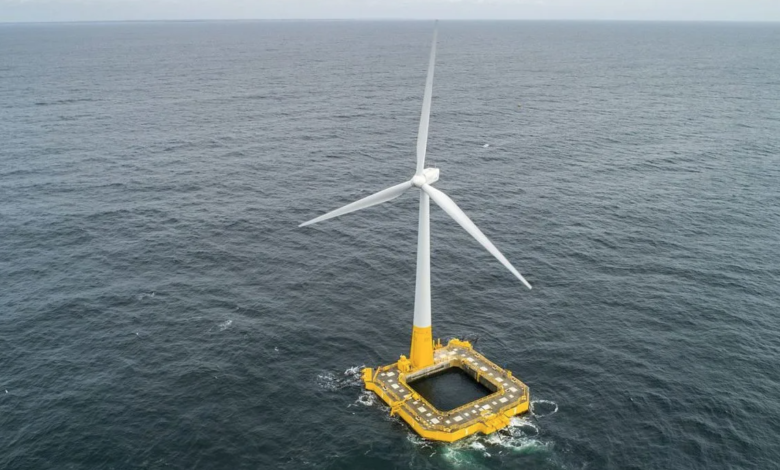The environmental benefits of floating wind throughout the life cycle

What are the environmental benefits of floating wind
– The floating wind brings with it precise environmental benefits and not only because with its production decreases the carbon footprint of electricity generation. The benefits associated with this technology affect the entire life cycle. This was discovered by a research group of the Politecnico di Milano.
As explained in the article published in Sustainable Production and Consumption, Gaia Brussa, Mario Grosso and Lucia Rigamonti analyzed the environmental performance related to the supply of 1 GWh to the national electricity grid by a floating offshore wind farm. In particular, the study focused on assessing the life cycle of a large wind farm planned off the coast of Sicily. Let’s talk about Med Wind, maxi central Renexia for the channel of Sicily, which at full speed will consist of 190 “floating” turbines for an installed capacity of 2.8 GW. The preliminary draft was presented to the Ministry of the Environment and today must complete its authorization process. Why Med Wind? Because as Brussa, Grosso and Rigamonti explain, it is a very particular project: it is one of the first in the panorama of the Mediterranean offshore and for now the largest planned in Europe with floating technology.
First useful information
In the analysis carried out, the scientists included all the phases of material procurement, transport of components, assembly and installation with specialized boats, maintenance during the operating phase, dismantling and end of life. “The analysis – explains Rigamonti, professor of Methodologies for life cycle thinking – also includes the other components needed to build a wind farm at sea, with particular attention to the electrical system necessary for the transmission of energy produced“. Punctual work that leaves nothing to chance. And the results highlight the environmental benefits of floating wind. Comparing 1 GWh of energy produced by the park with the same amount of energy taken from the national electricity grid, the total impacts of the park are significantly reduced for almost all the impact categories analyzed. A worsening is observed only for the category “abiotic resource depletion” (+95%).
Read also Floating wind, in Europe active 176 MW but runs to 4 GW
“The results show that the environmental impacts of the offshore wind farm with floating turbines are mainly associated with the life cycle of the wind turbine and the floating structure, and in particular the production of steel – explains Grosso, Professor of Waste Management and Treatment to polymer. “The other phases of the life cycle, instead, have contributions clearly more reduced regarding the phase of supplying”. “Overall, – adds Brussa, researcher at the Department of Civil and Environmental Engineering of the University of Milan – the results of the analysis provide a rough indication, It is useful to become aware of the environmental loads of a system of generation of electricity from renewable sources and compare it with other energy sources. However, it must be taken into account that “it is a preliminary estimate based on the design choices presented for the scoping phase (preliminary verification) of the Environmental Impact Assessment”.





